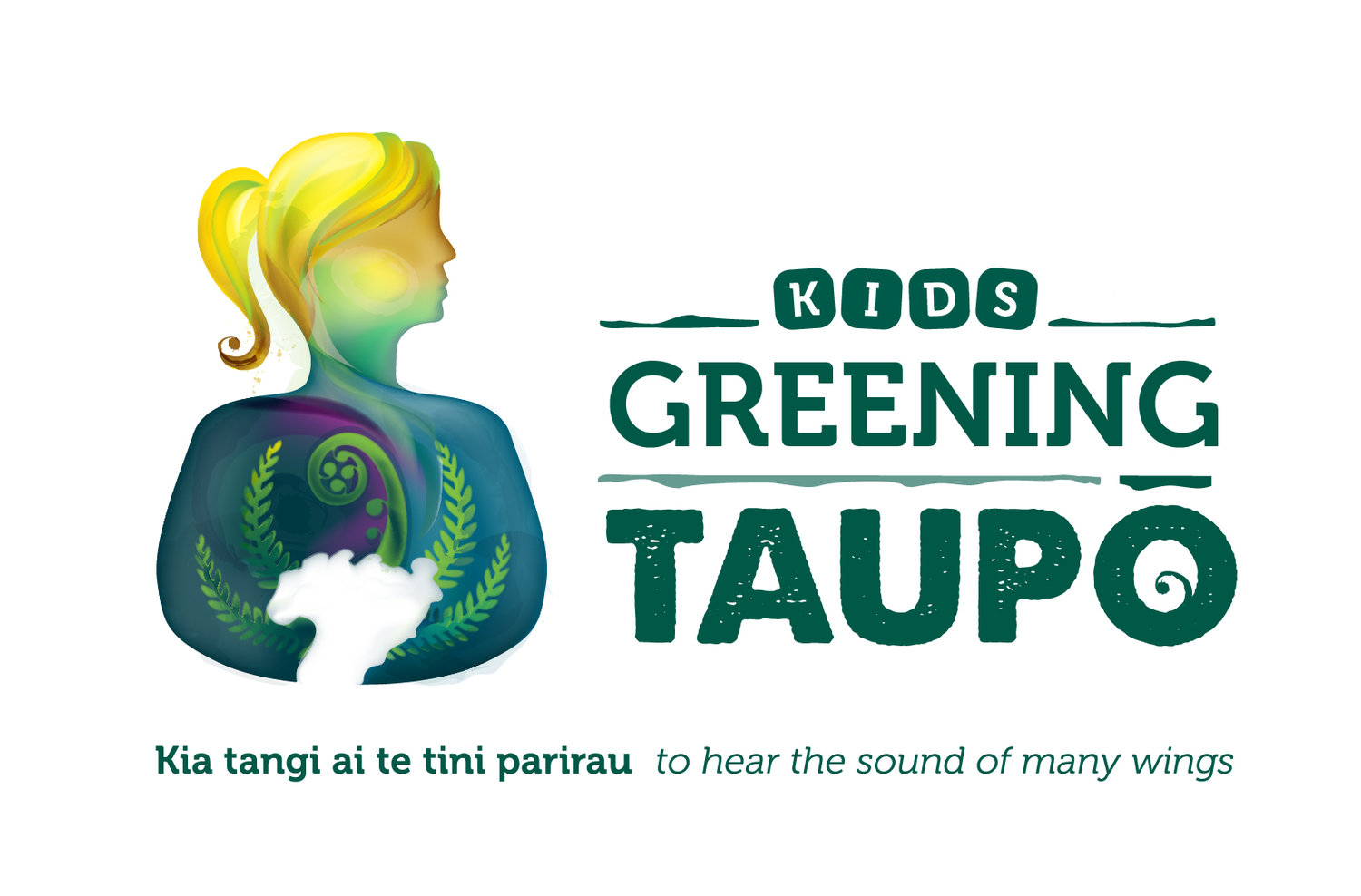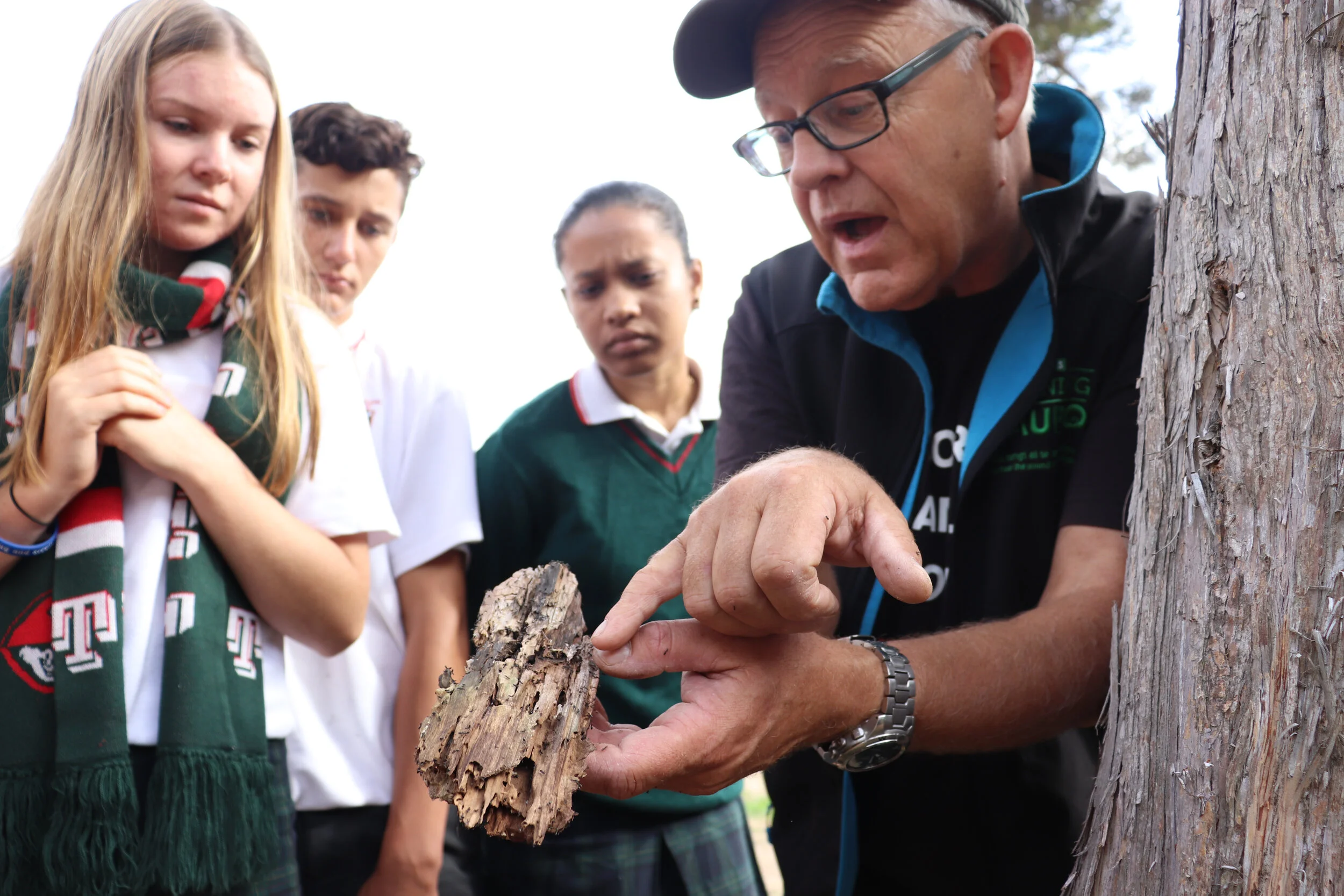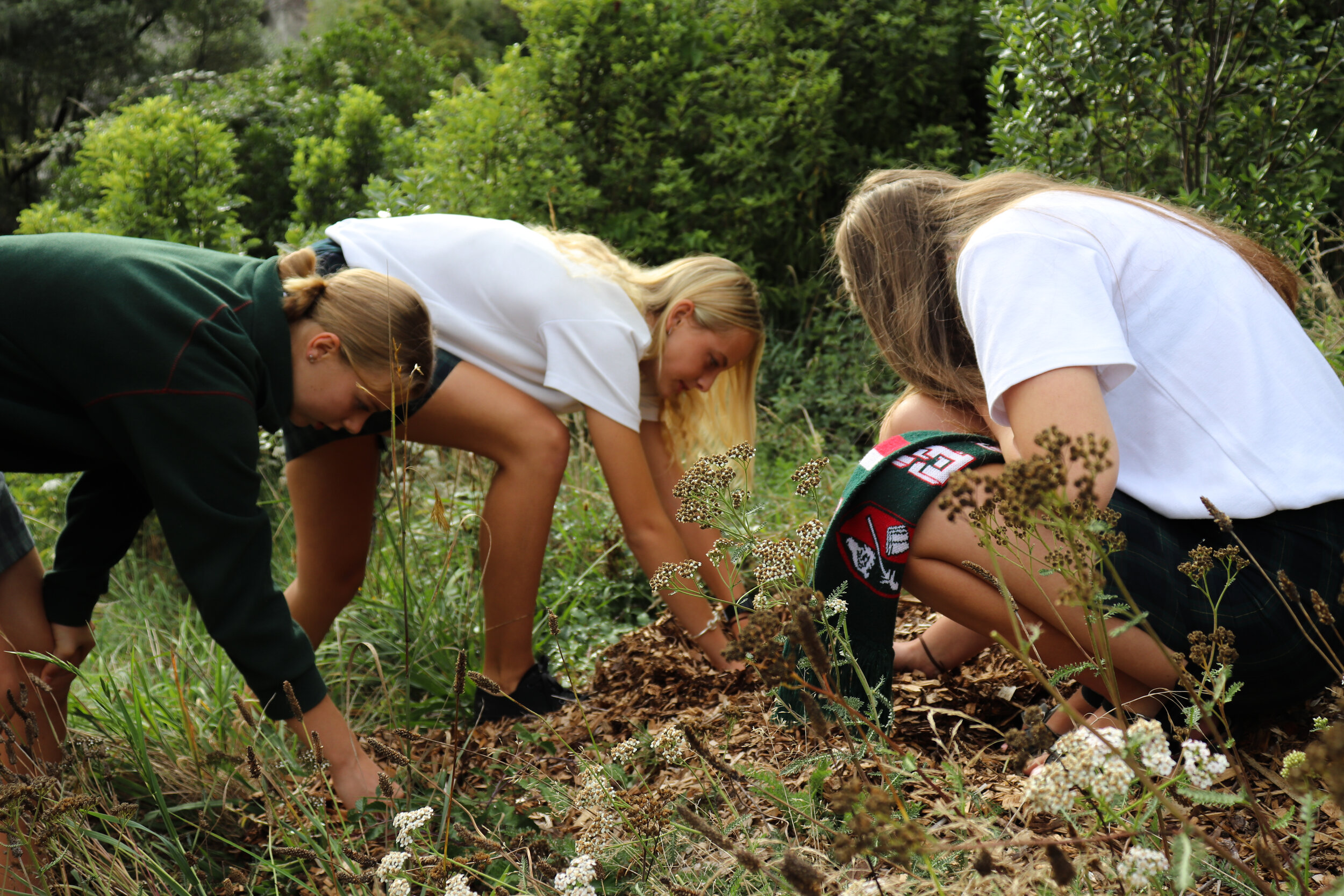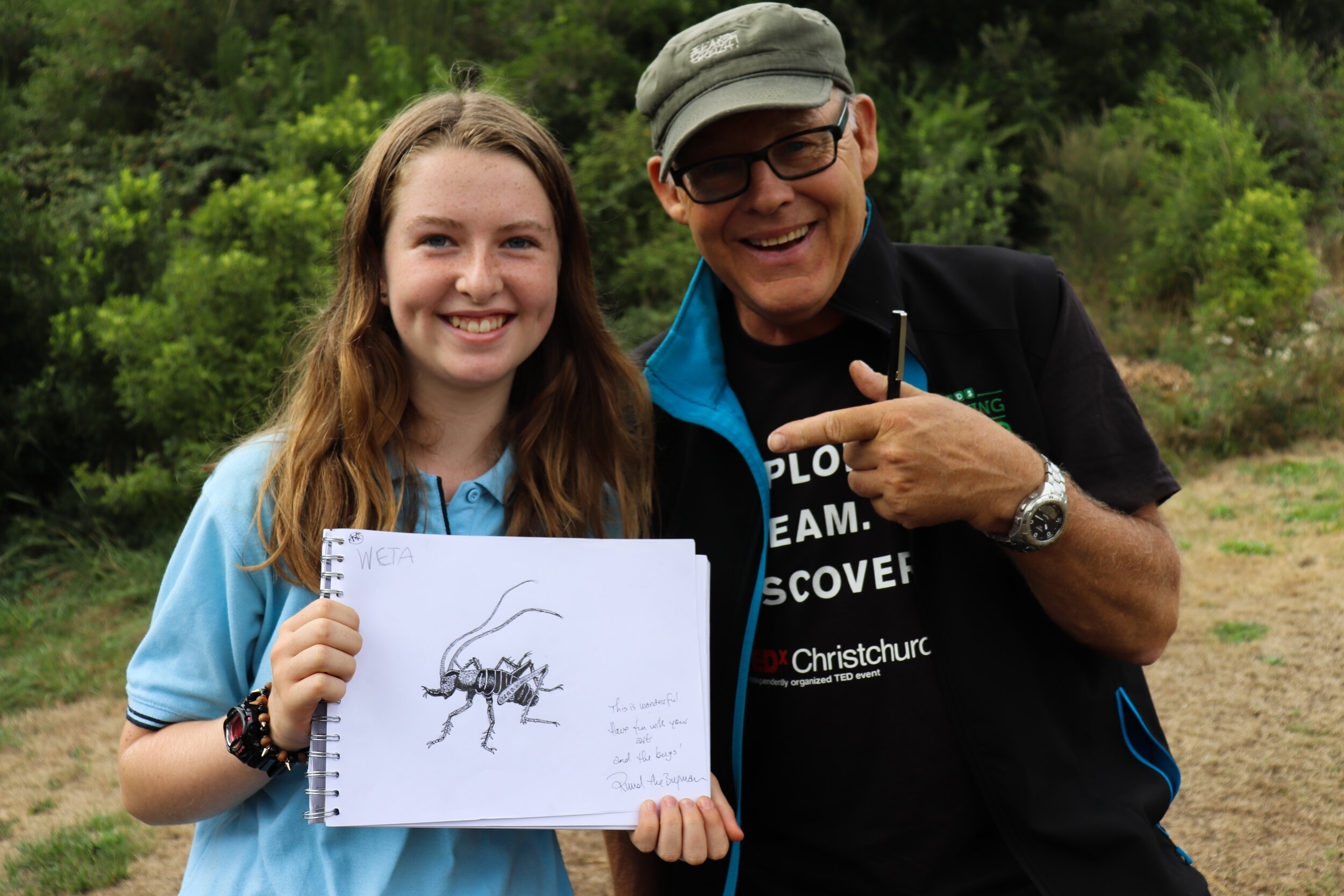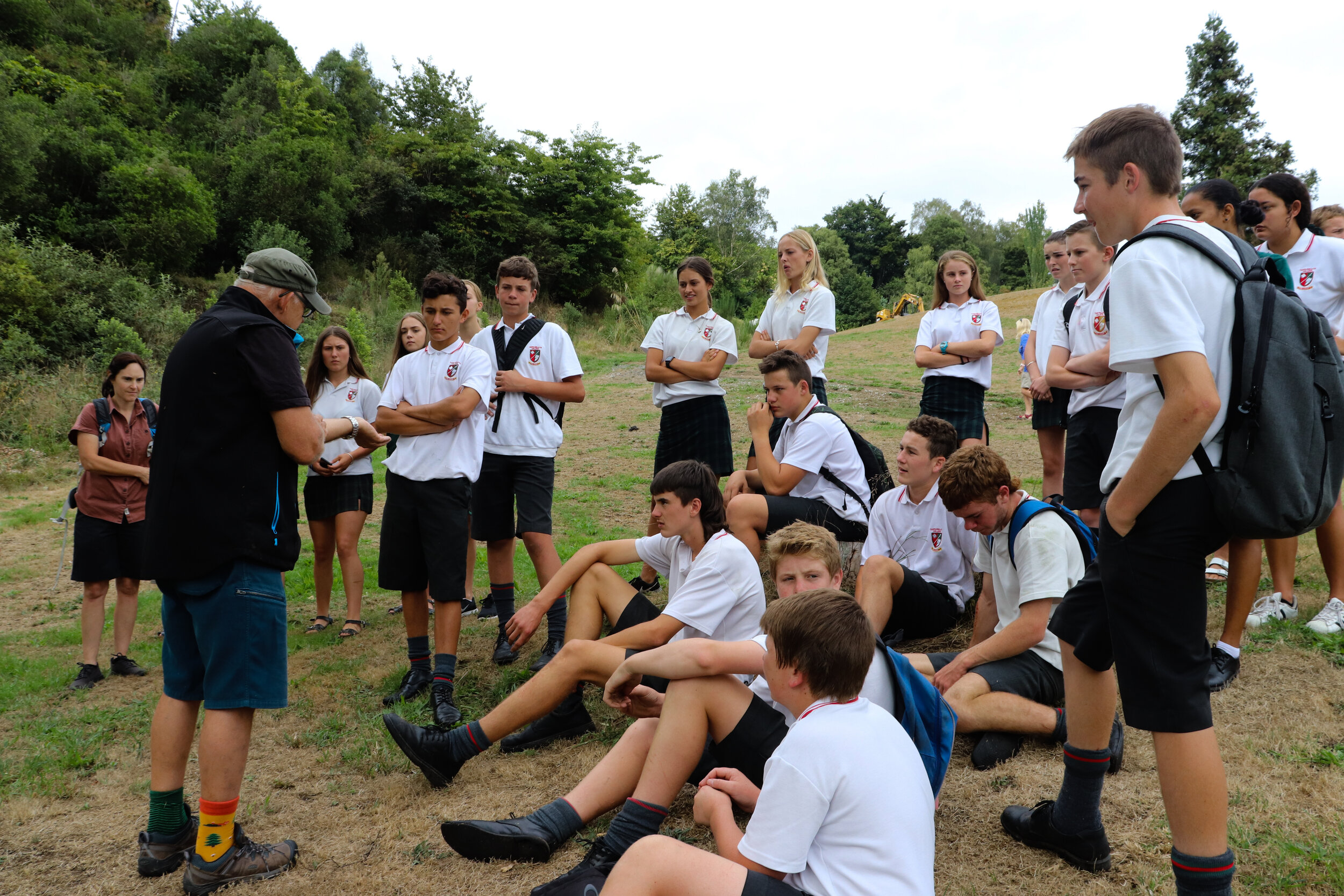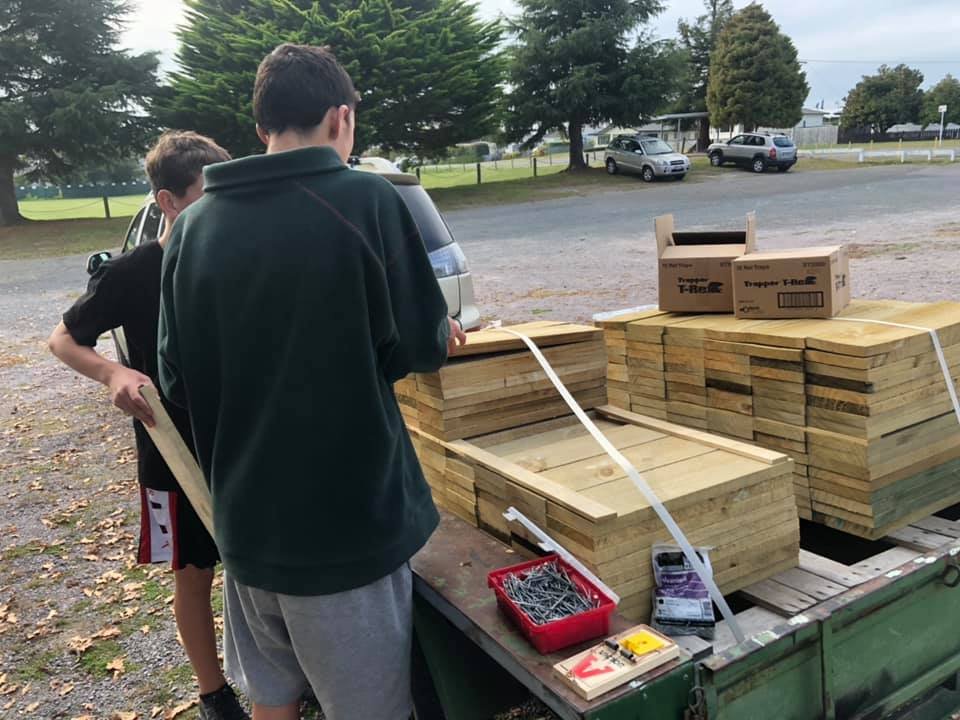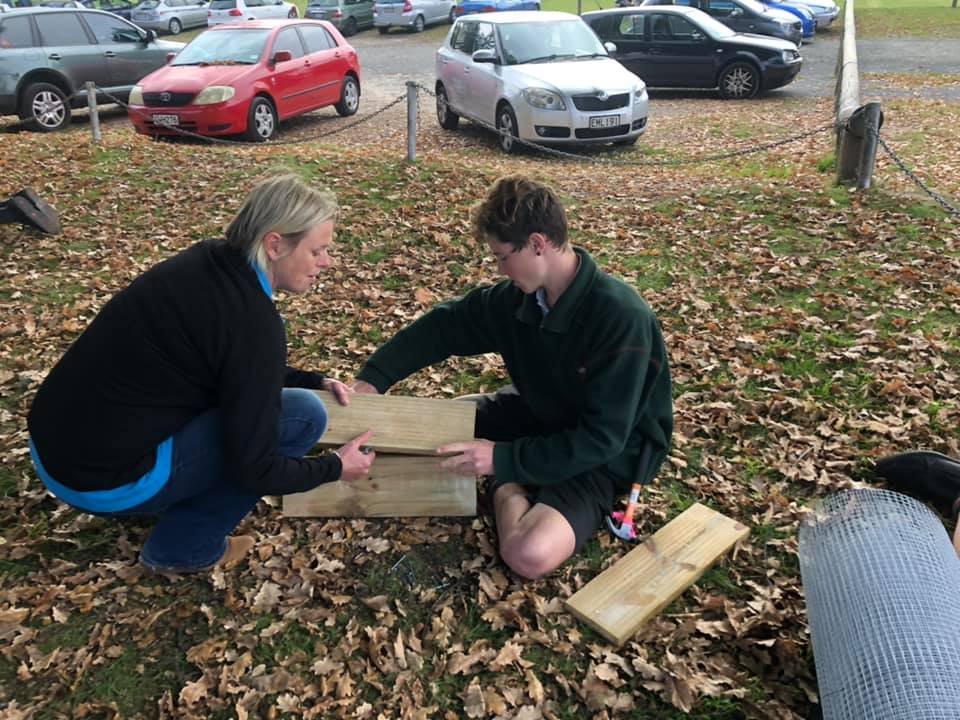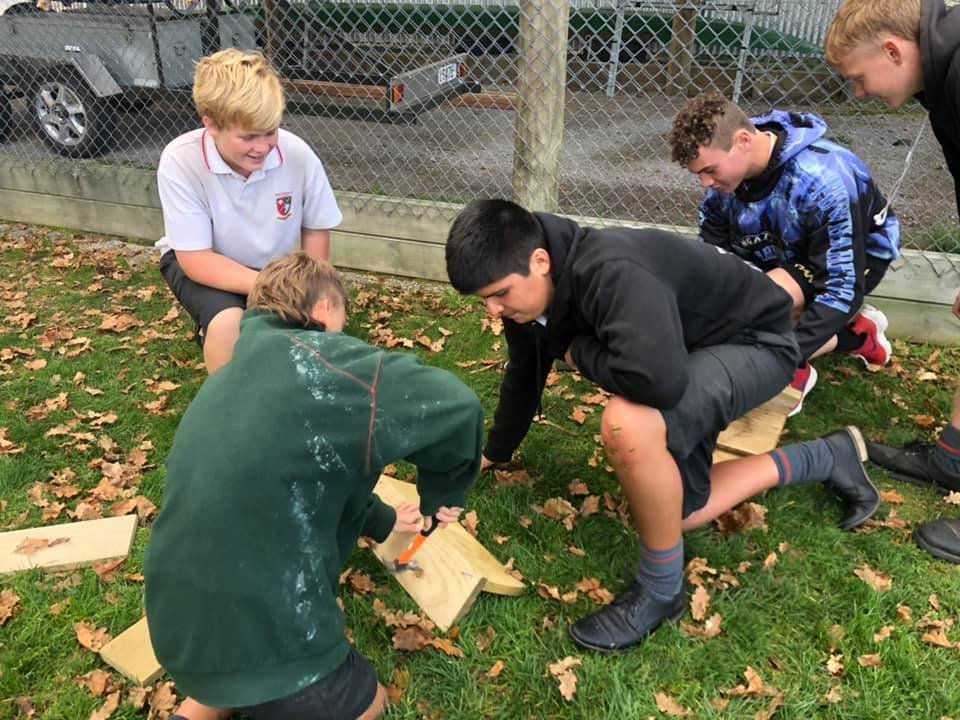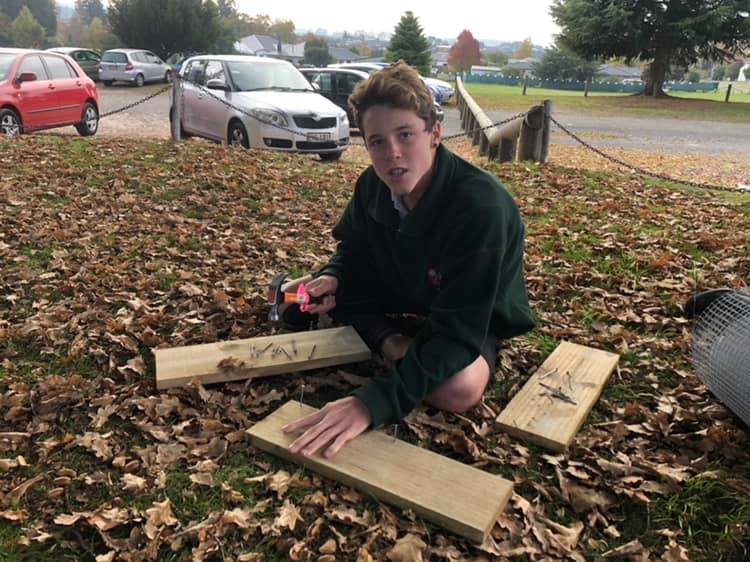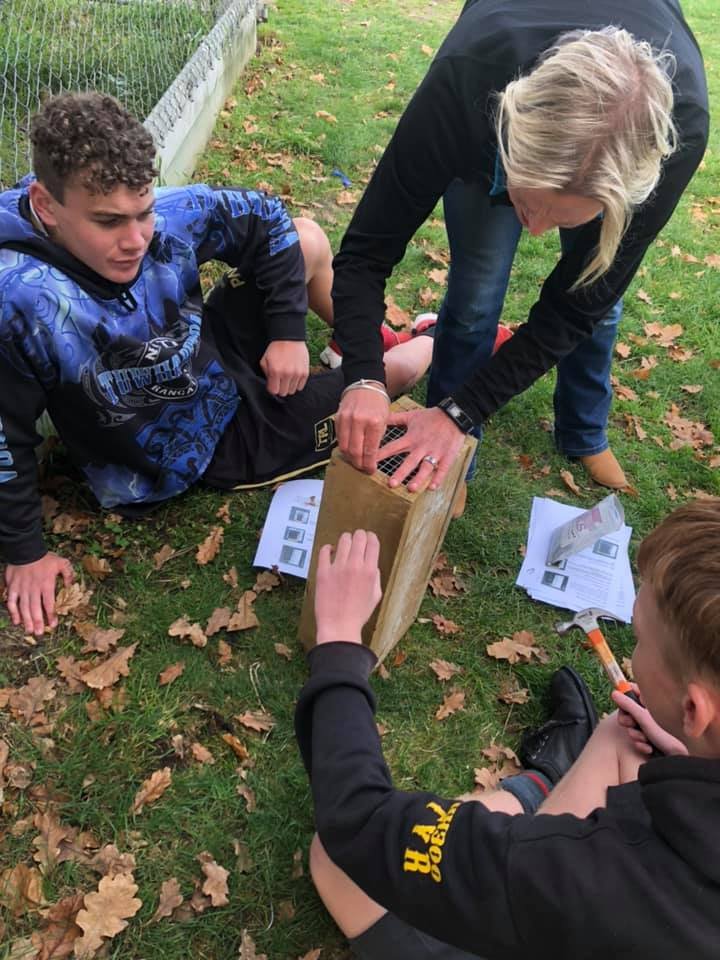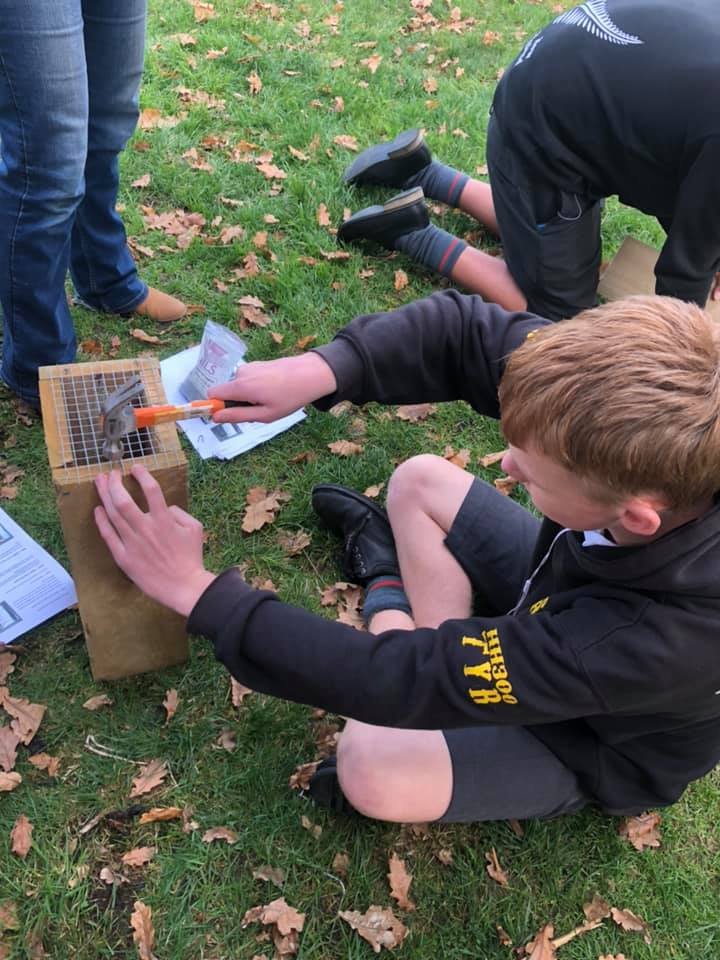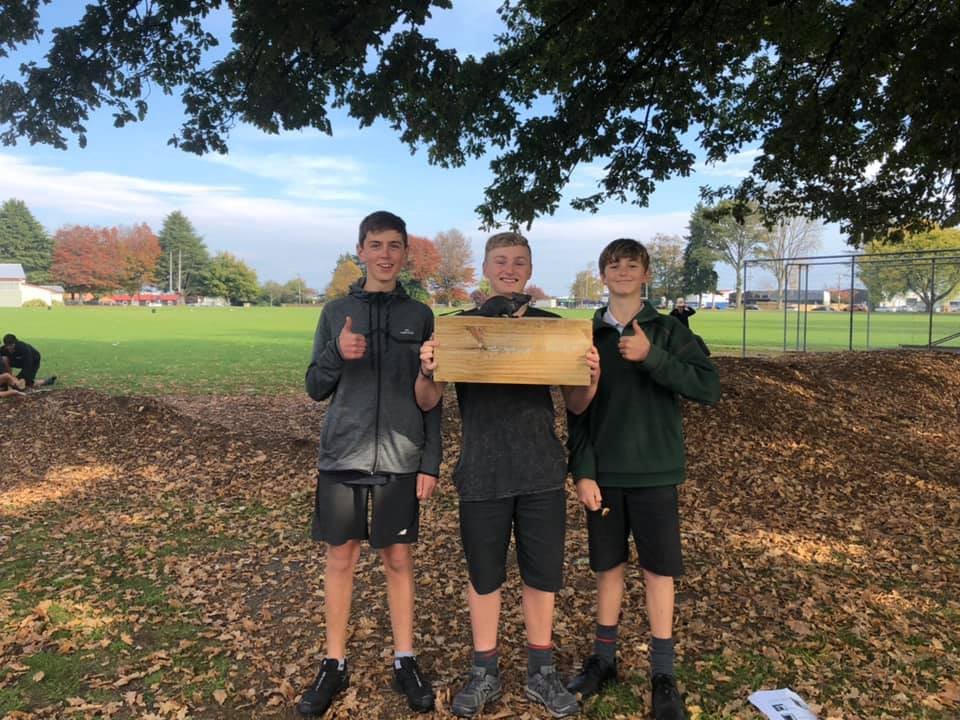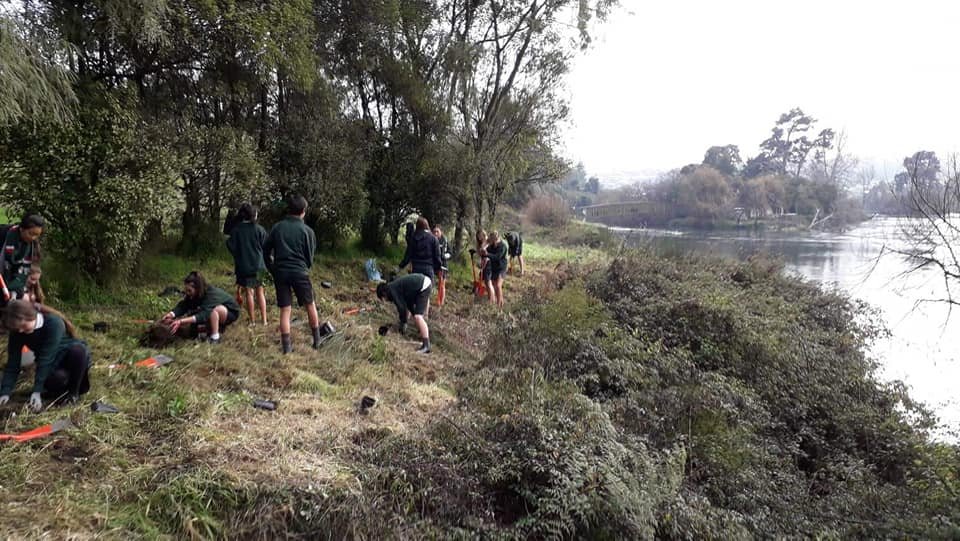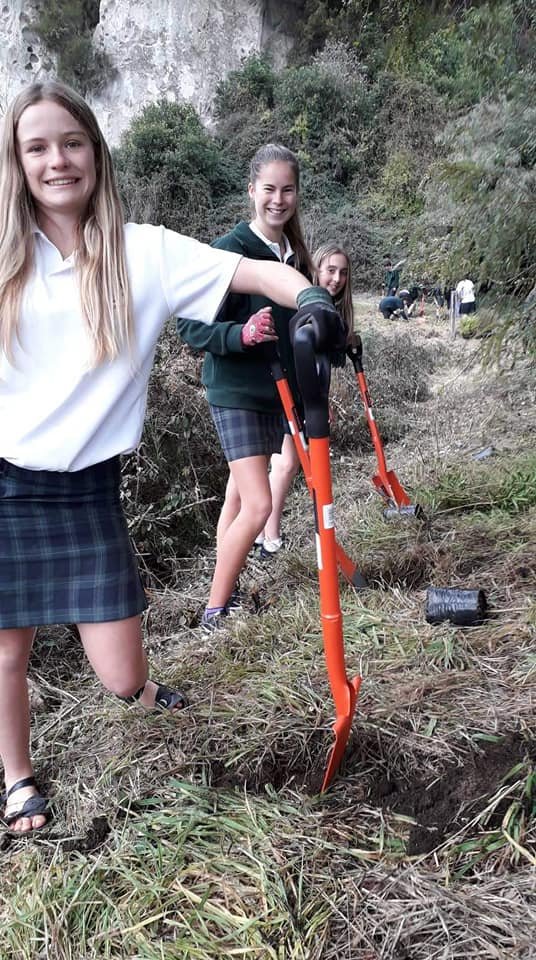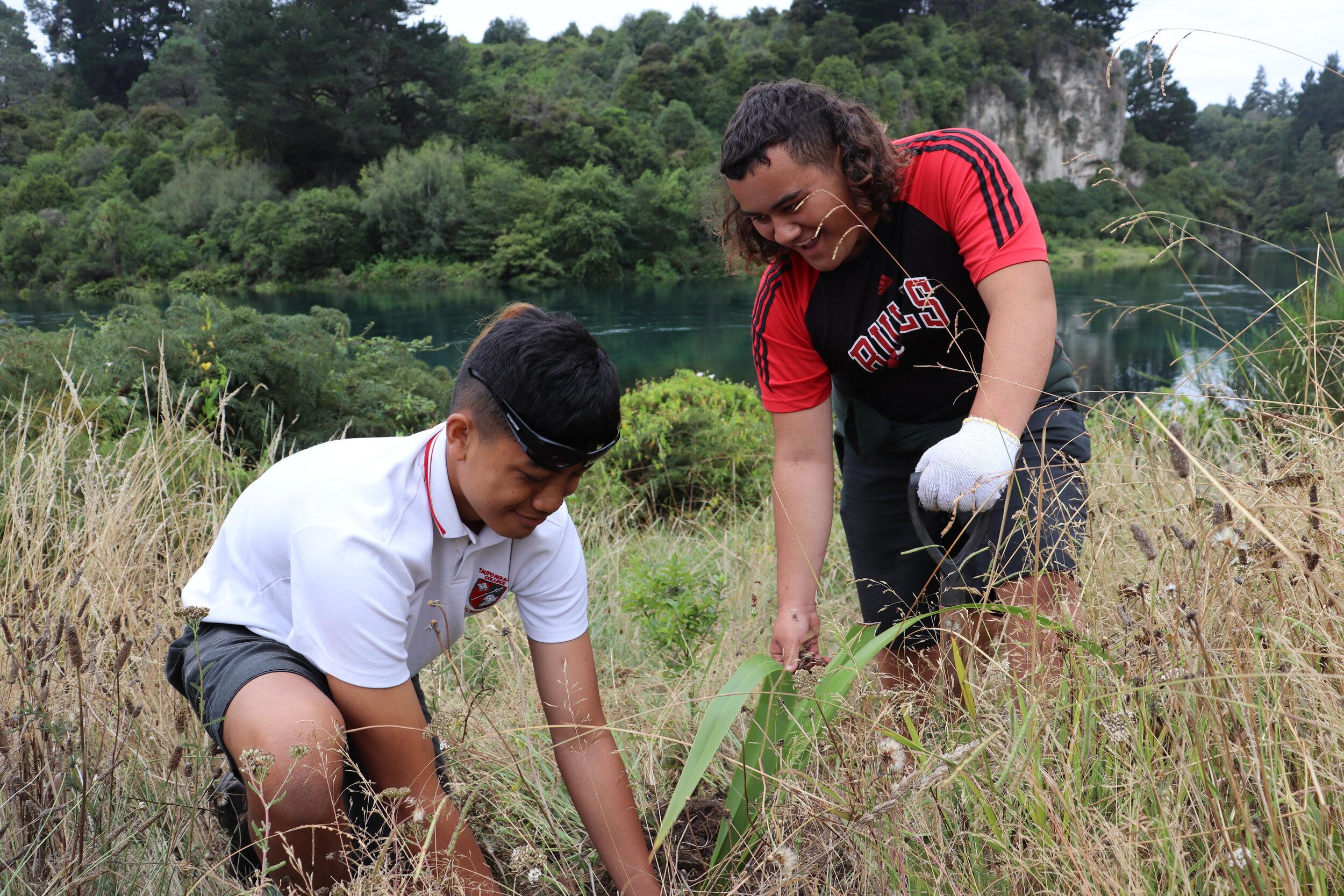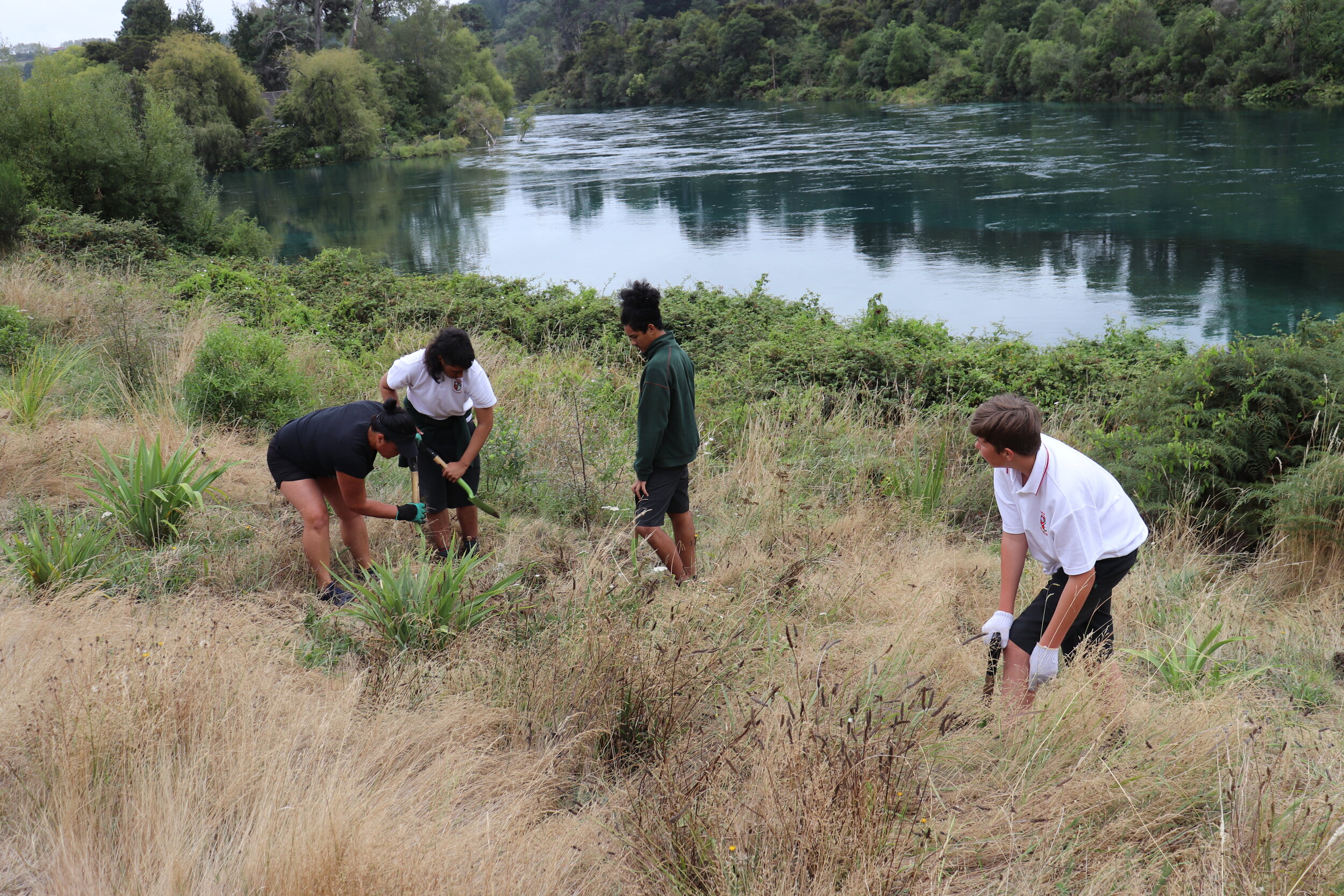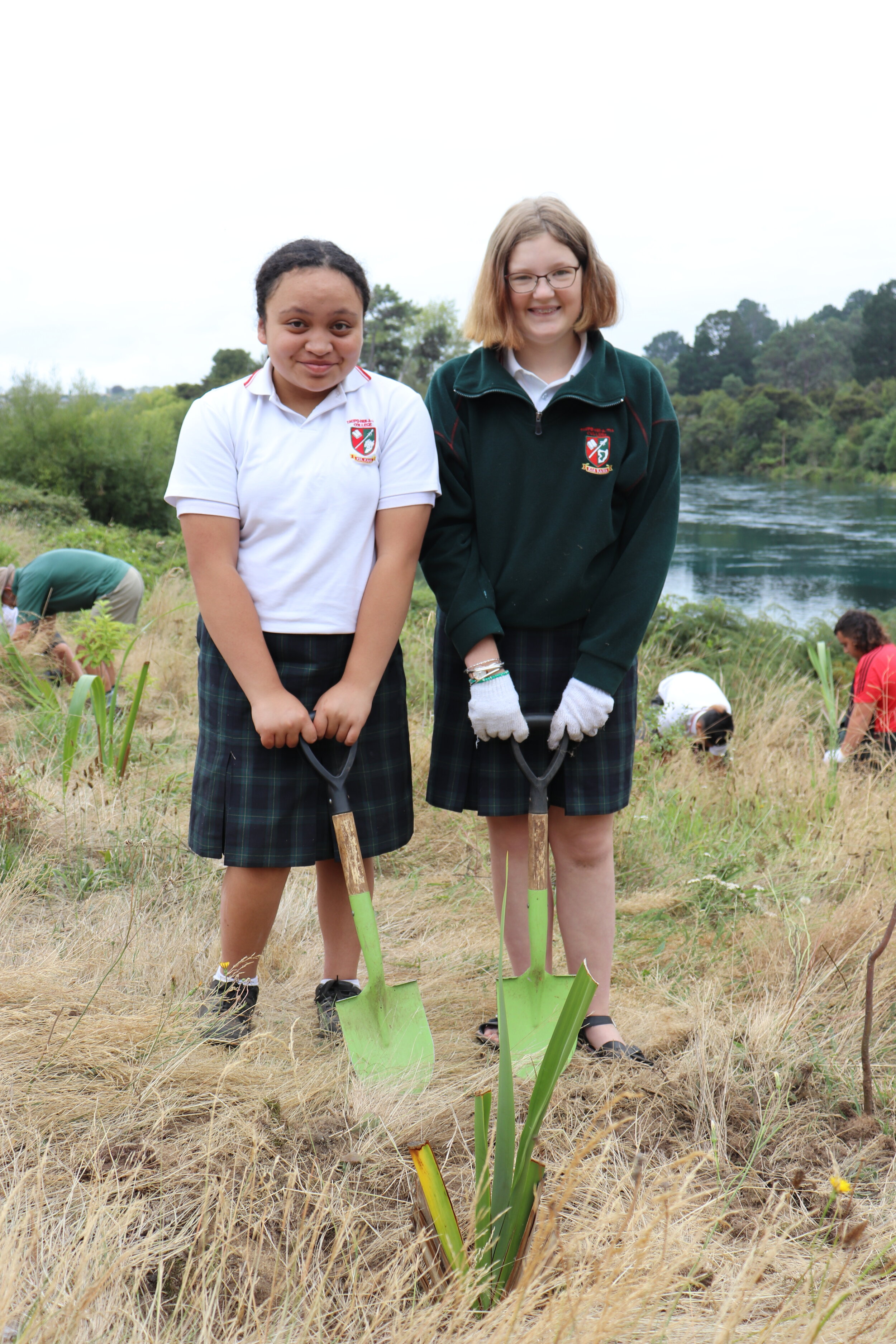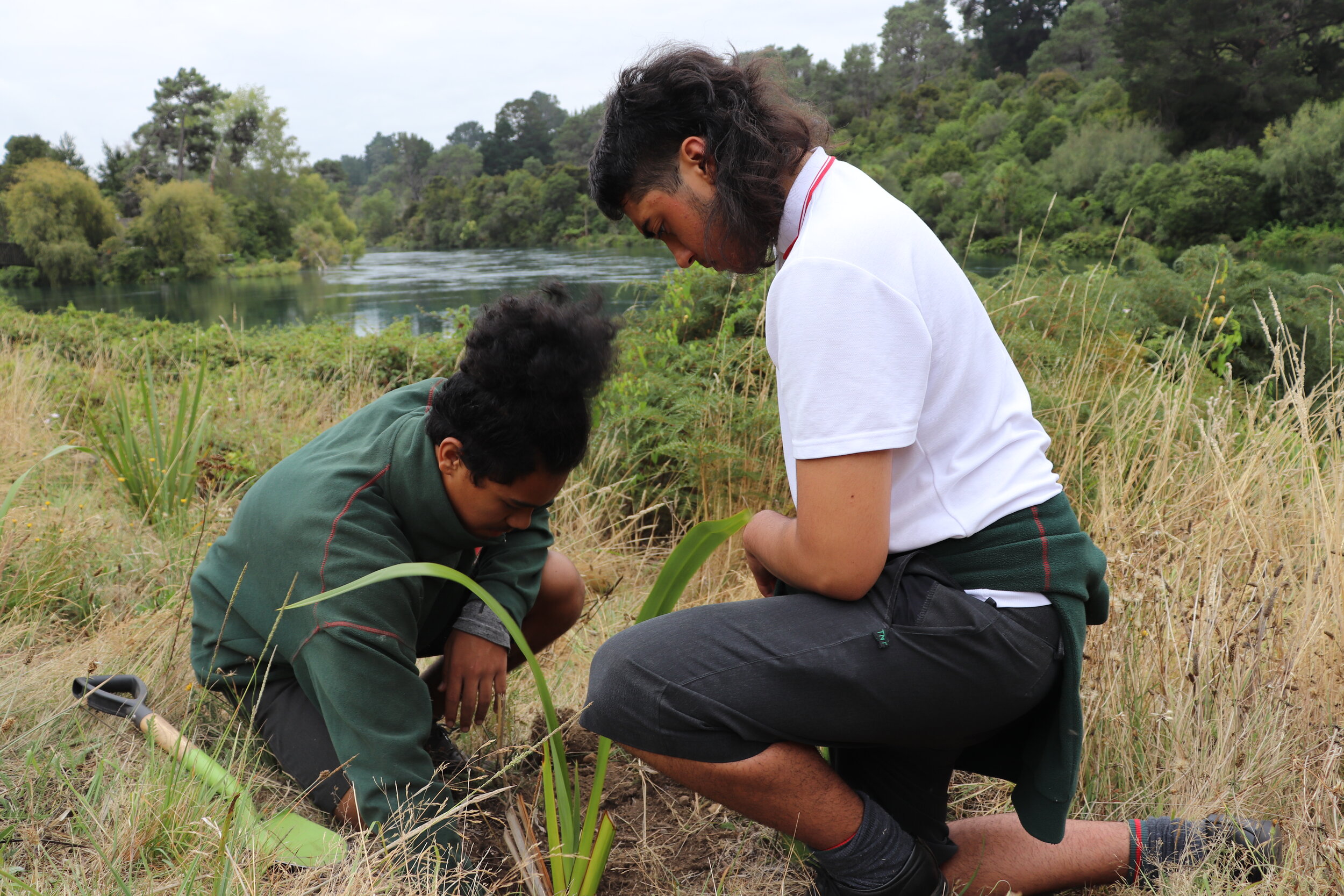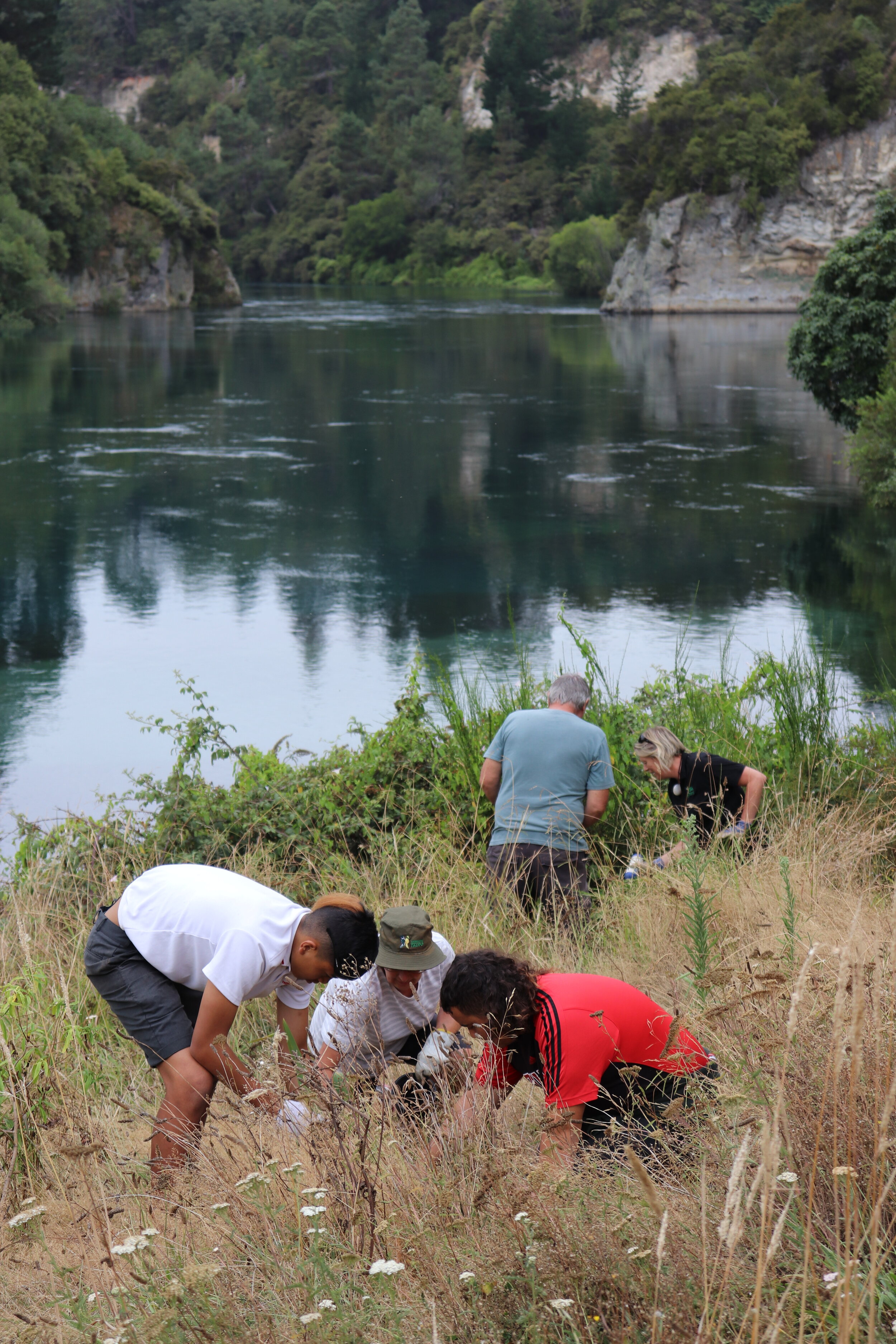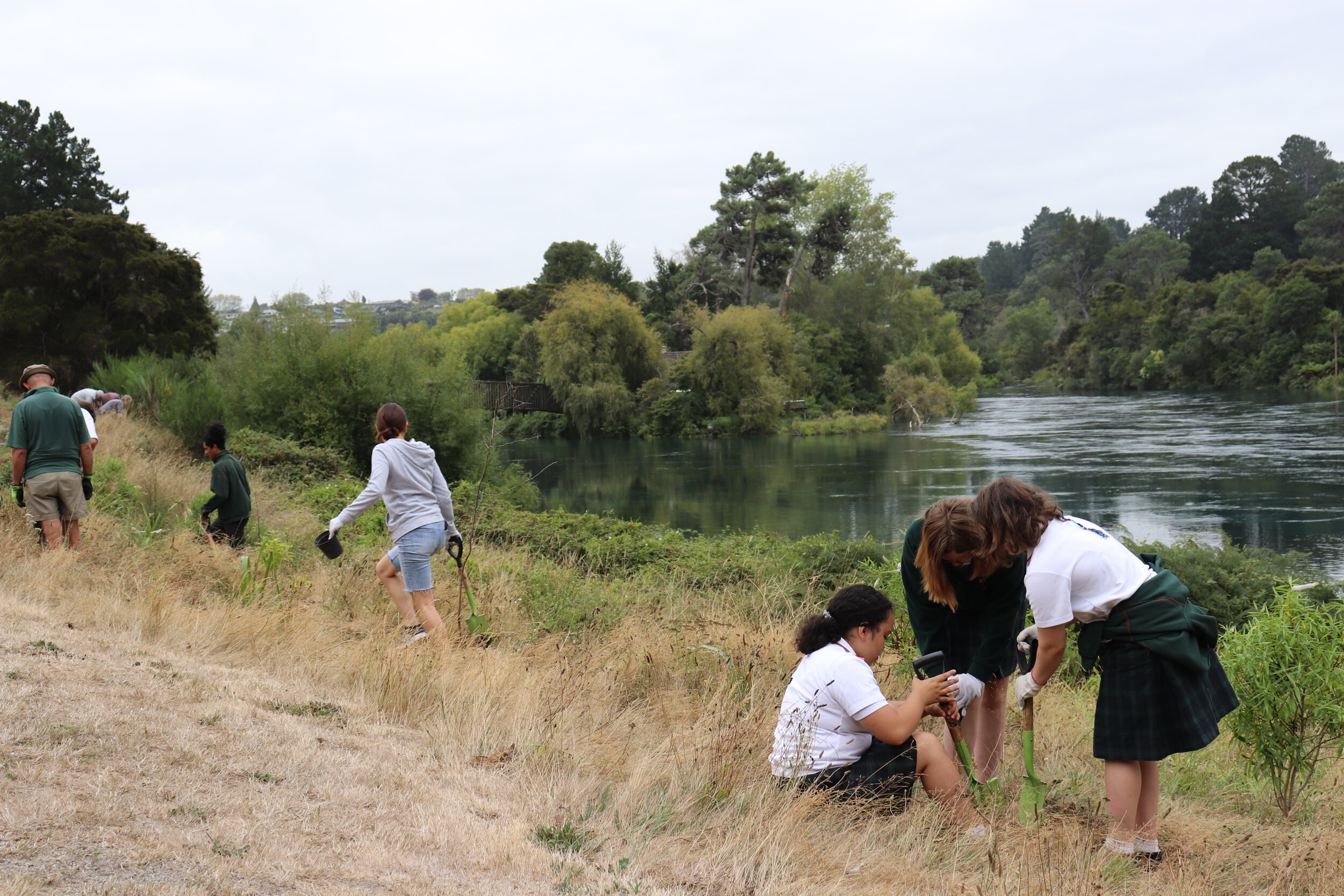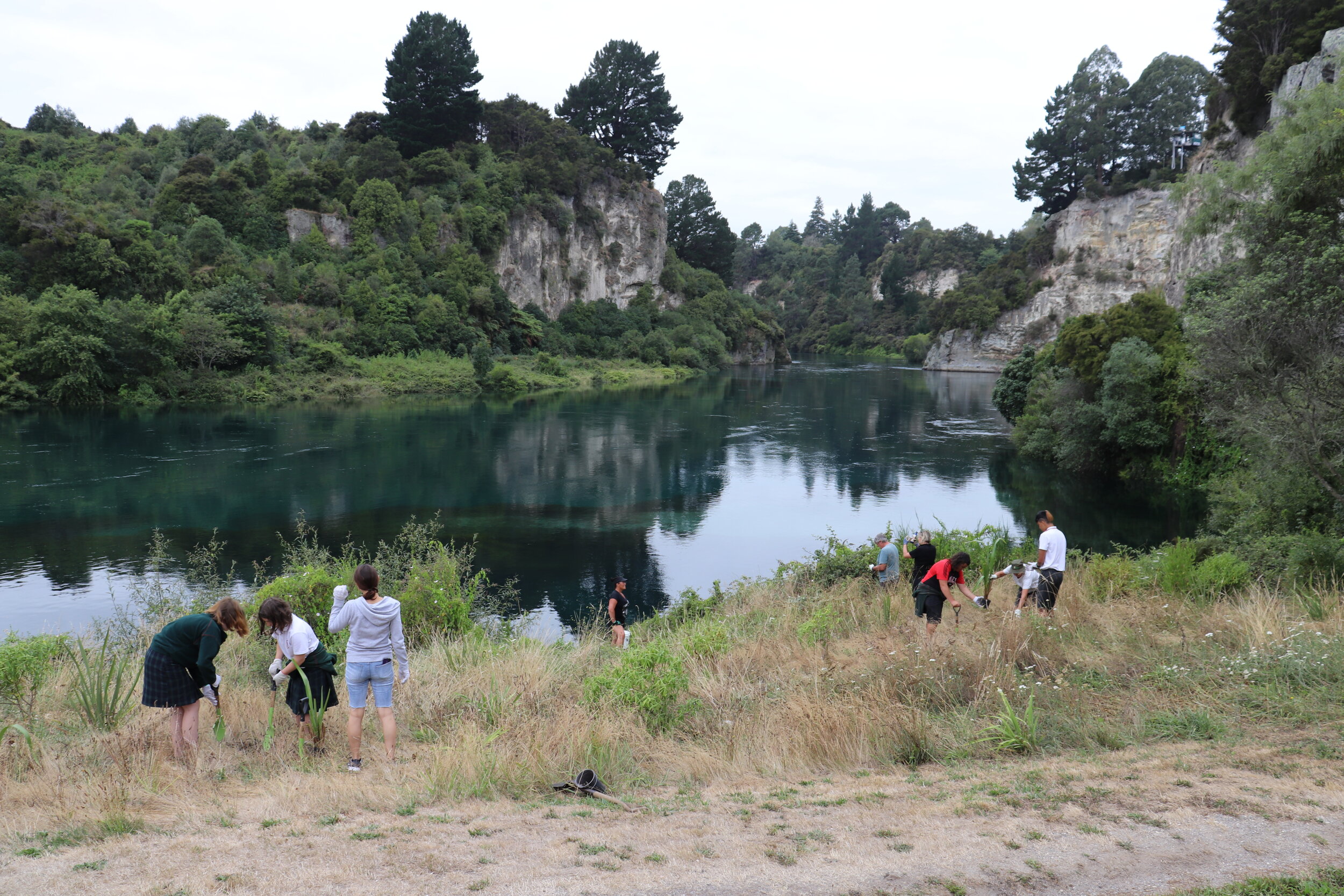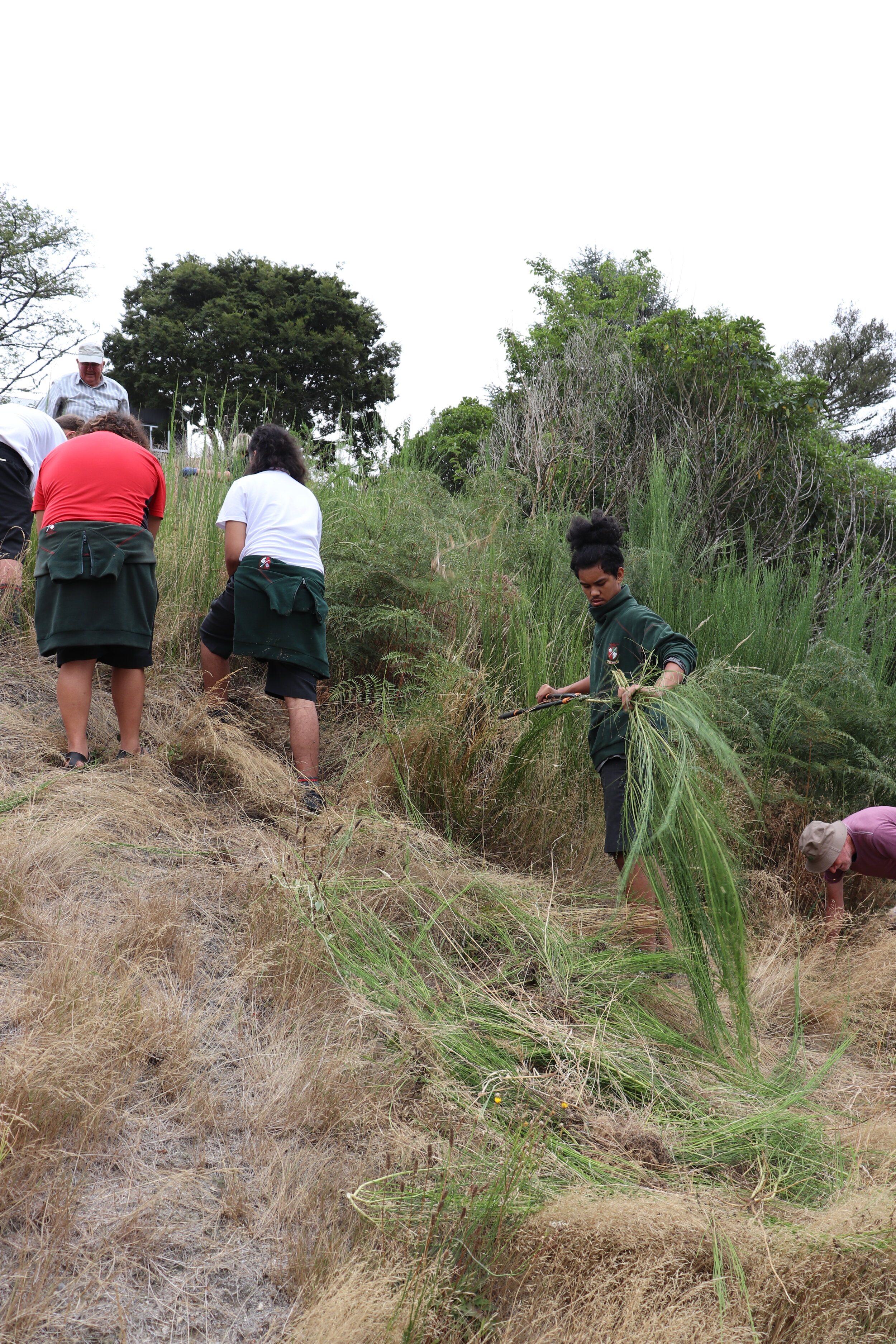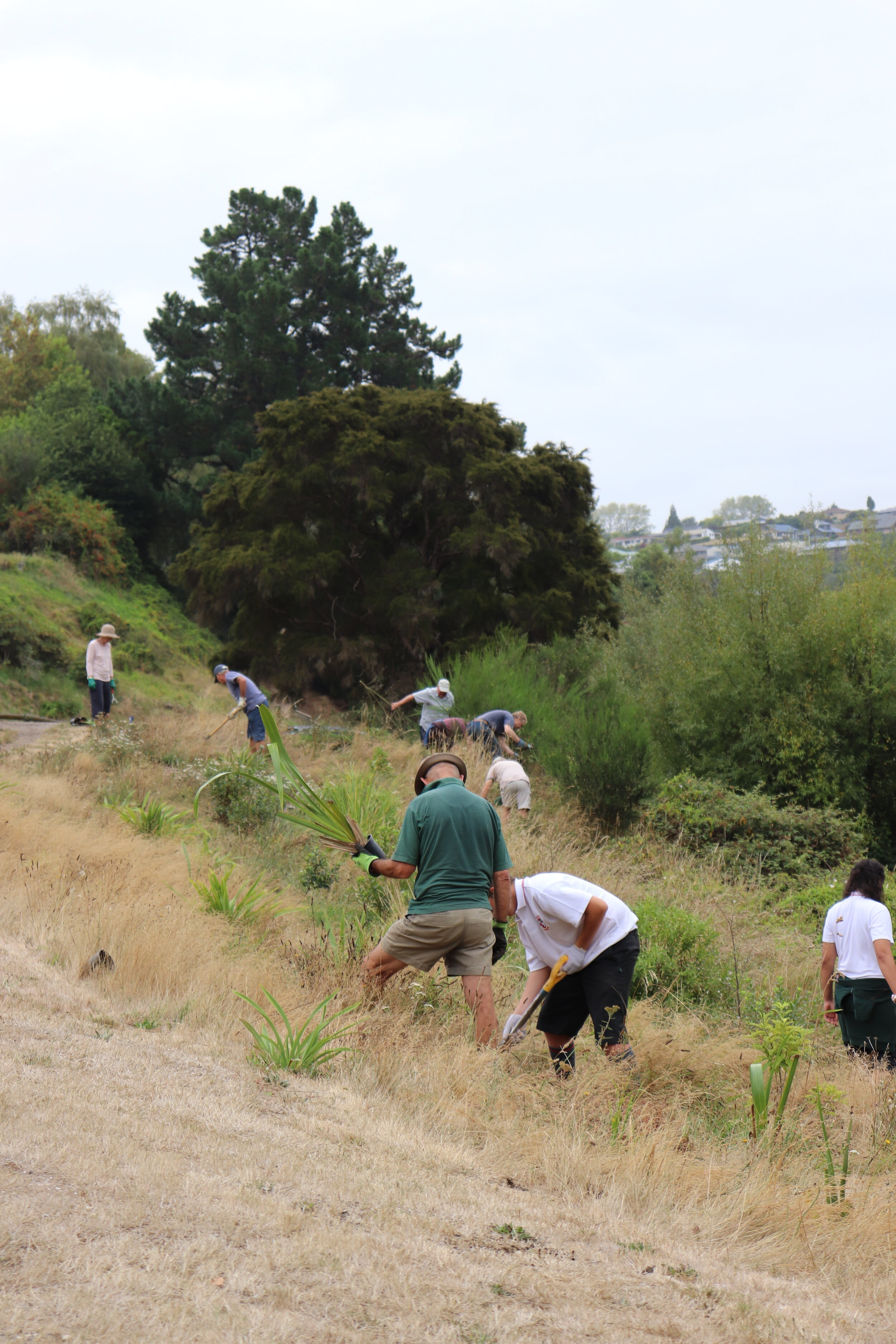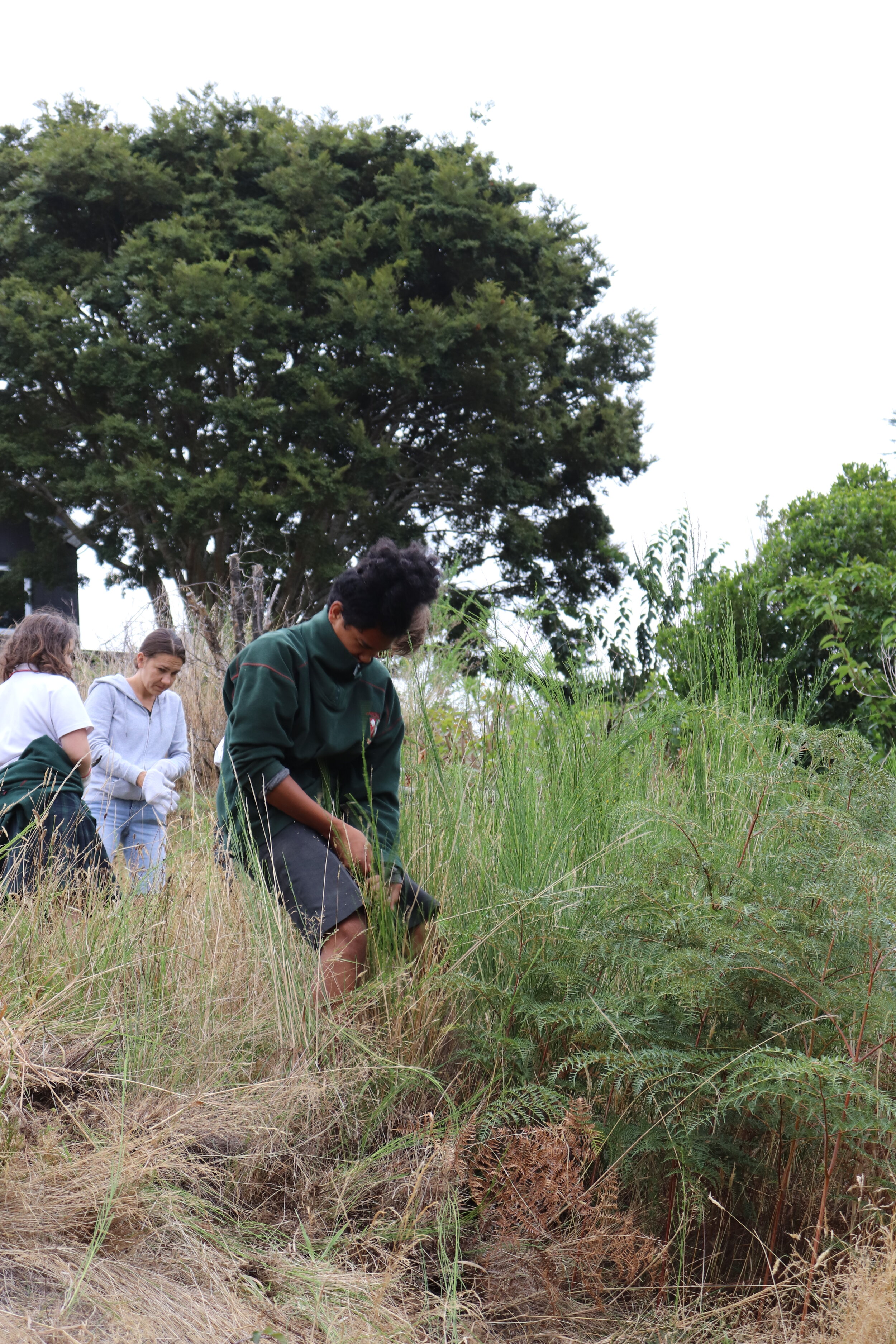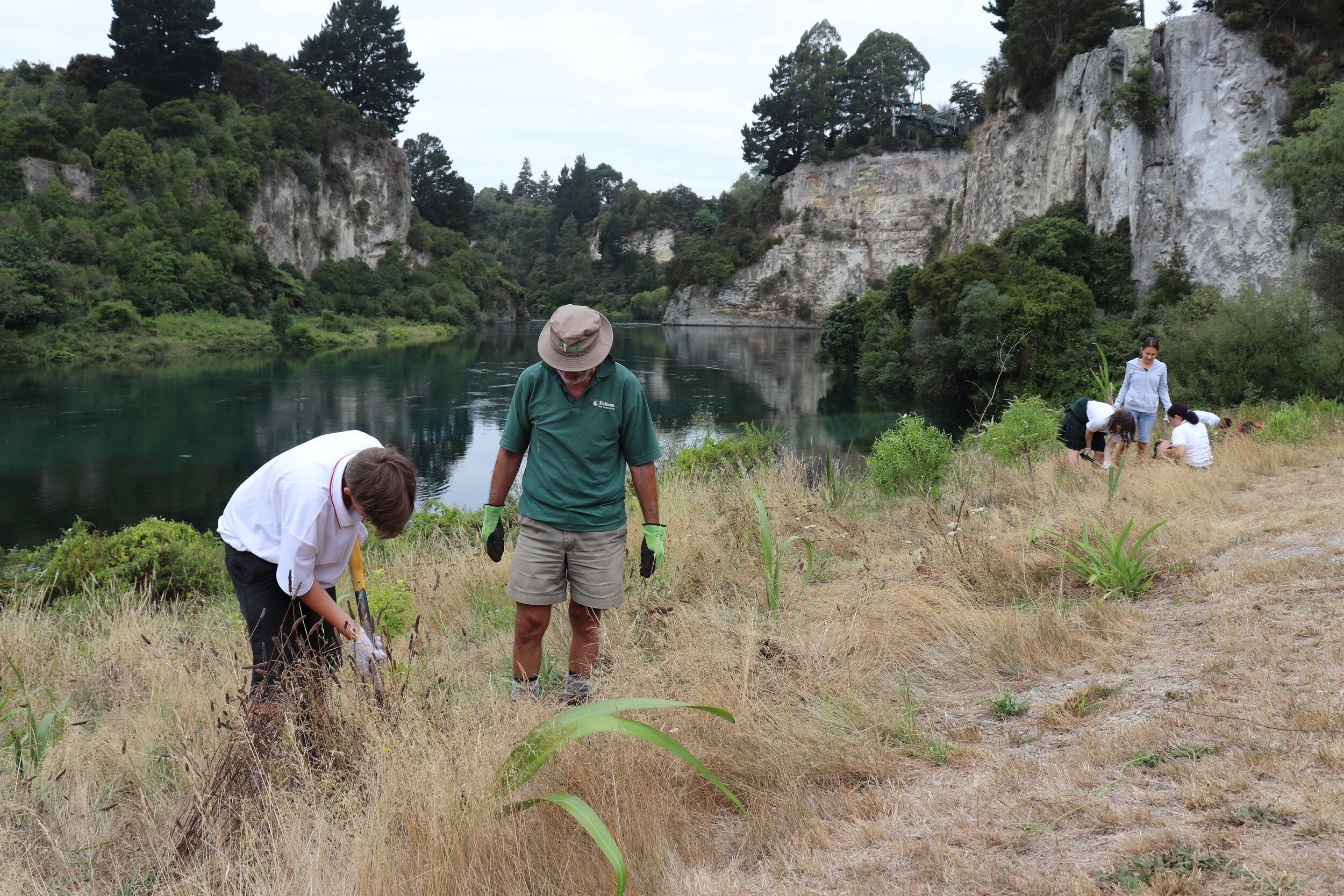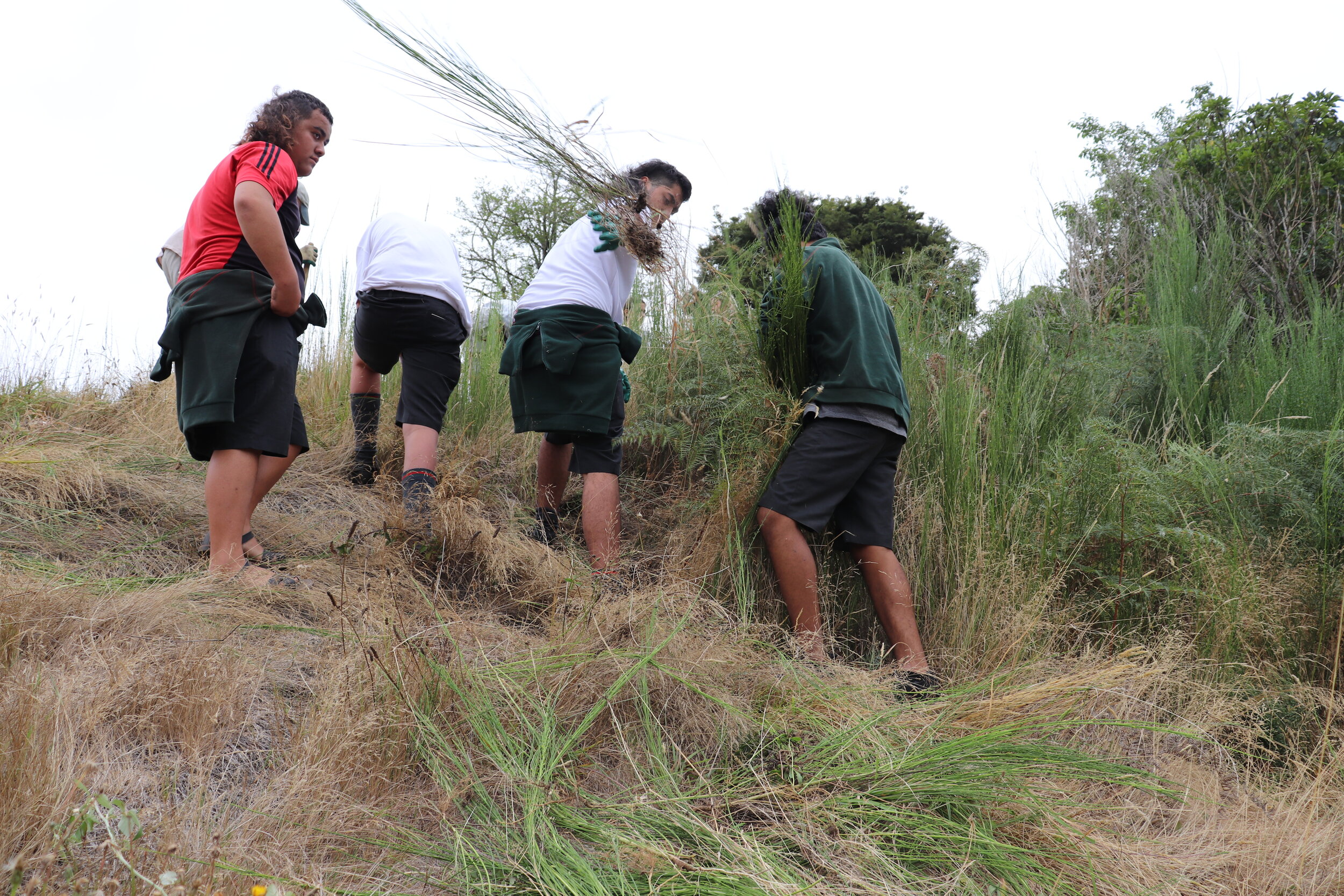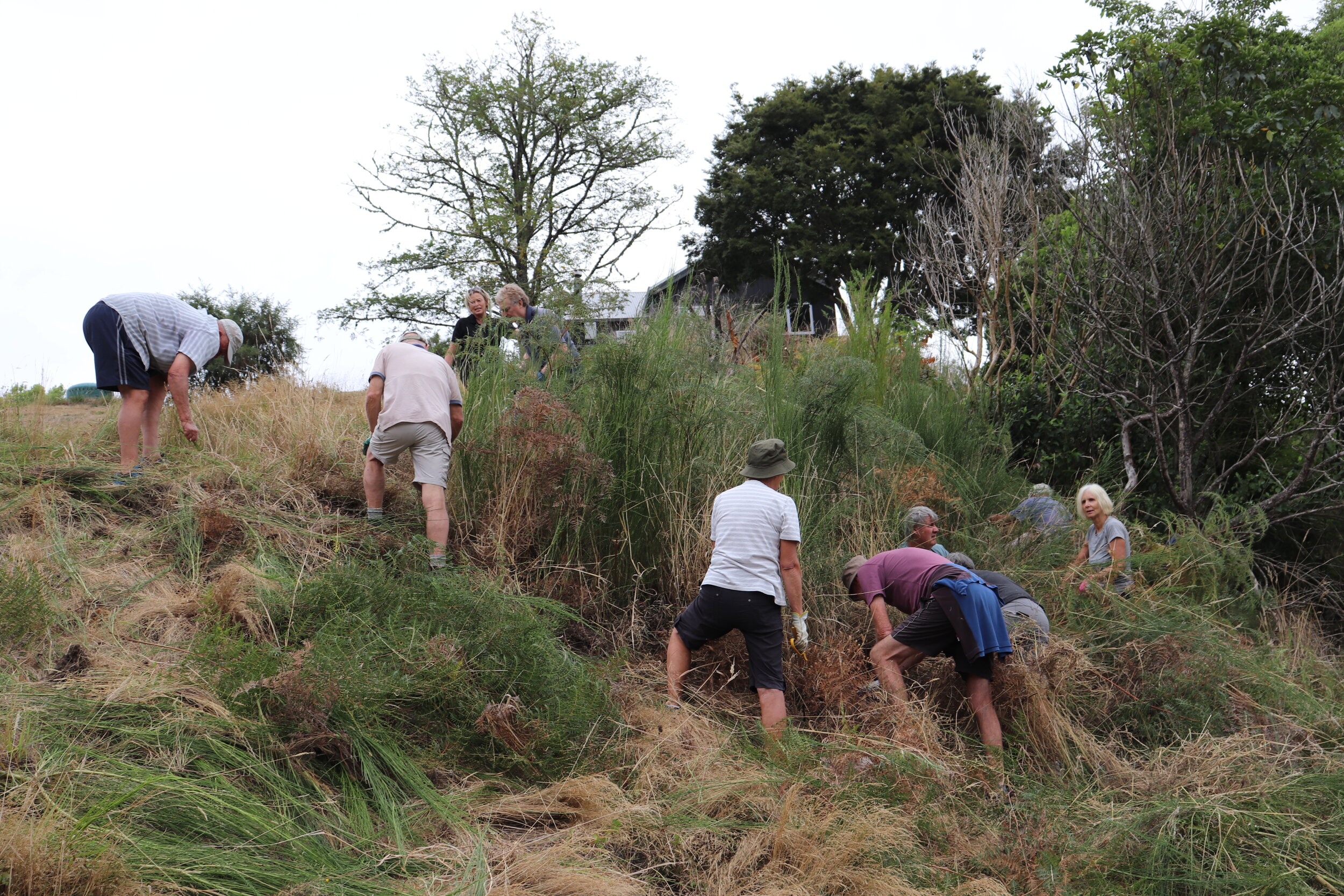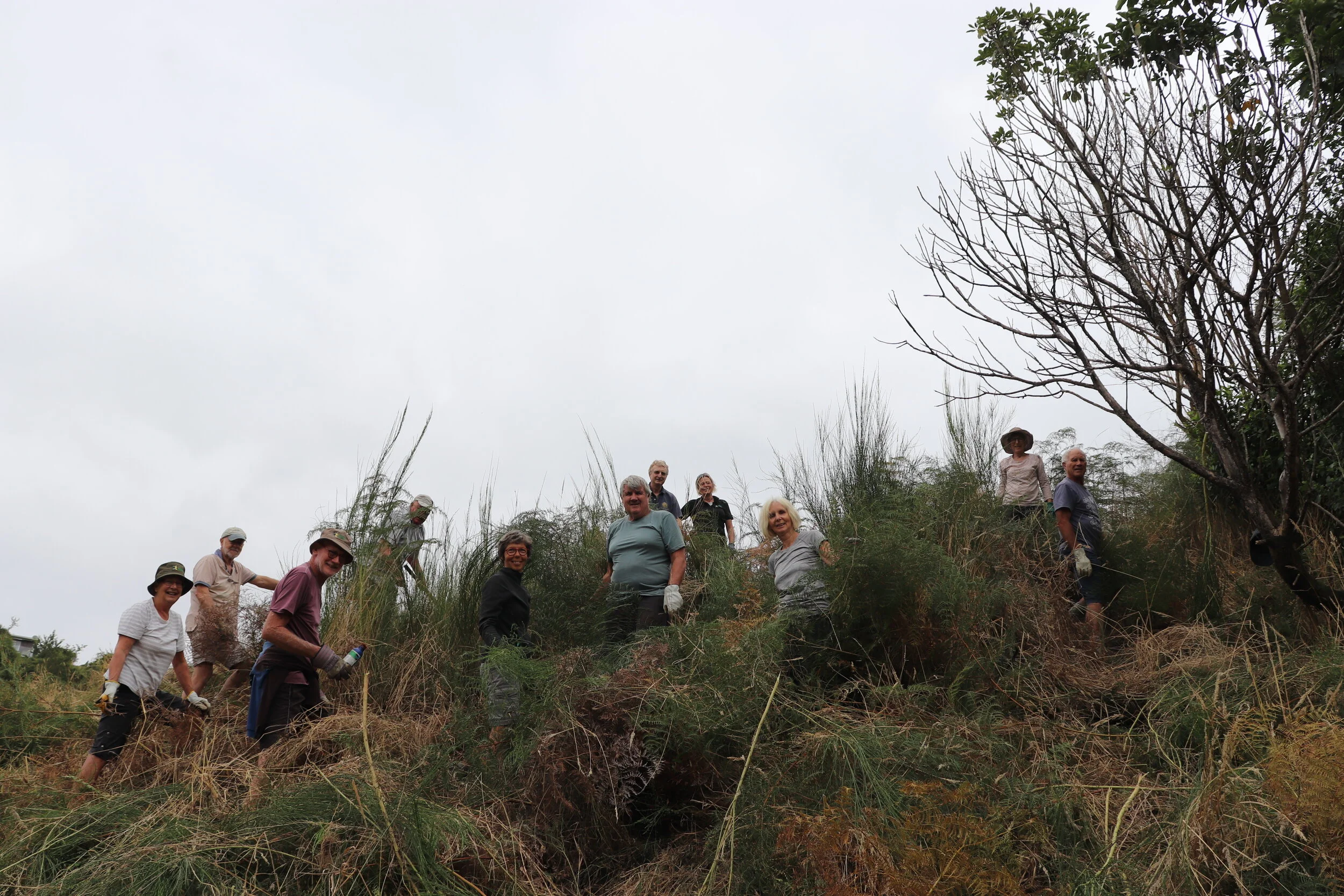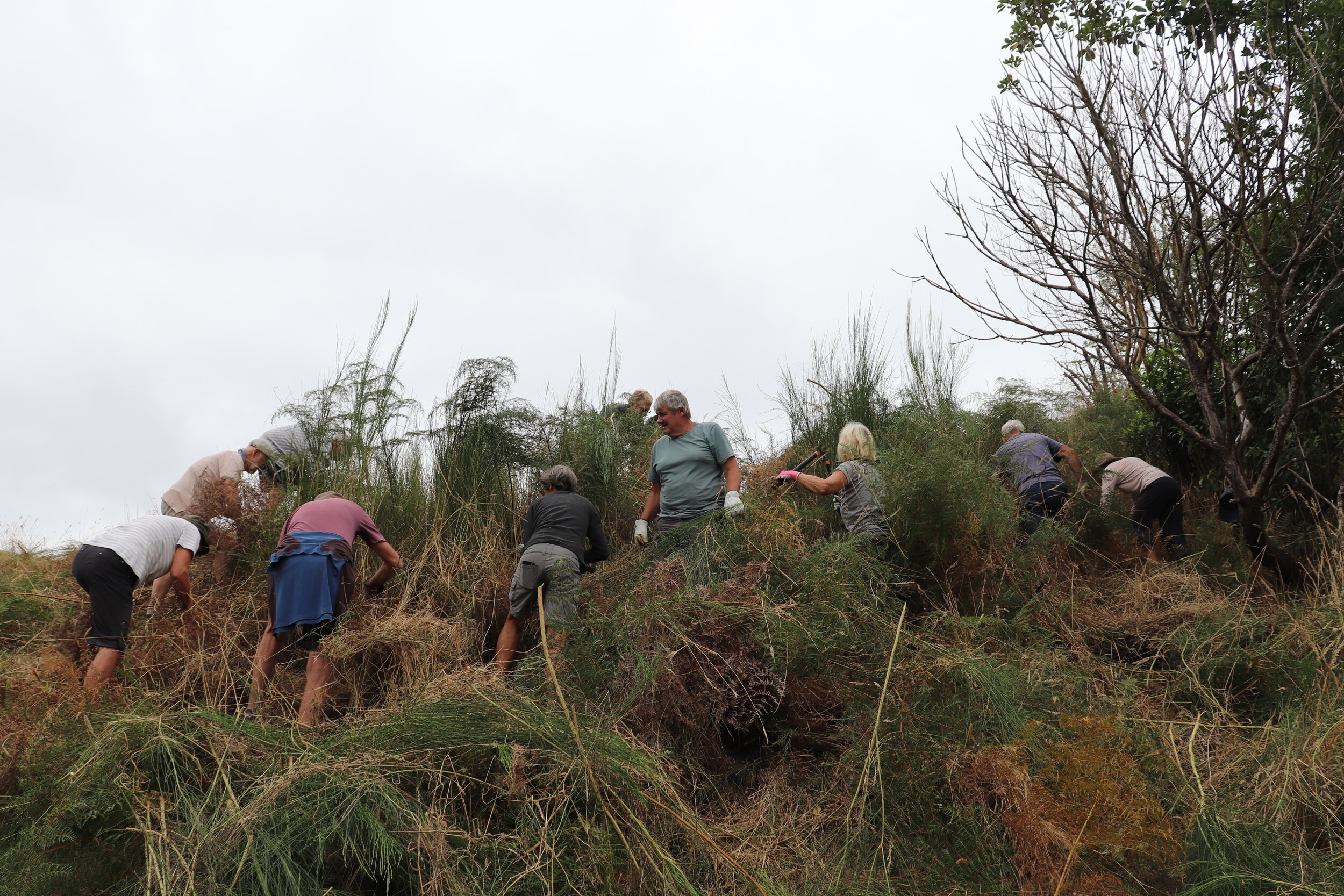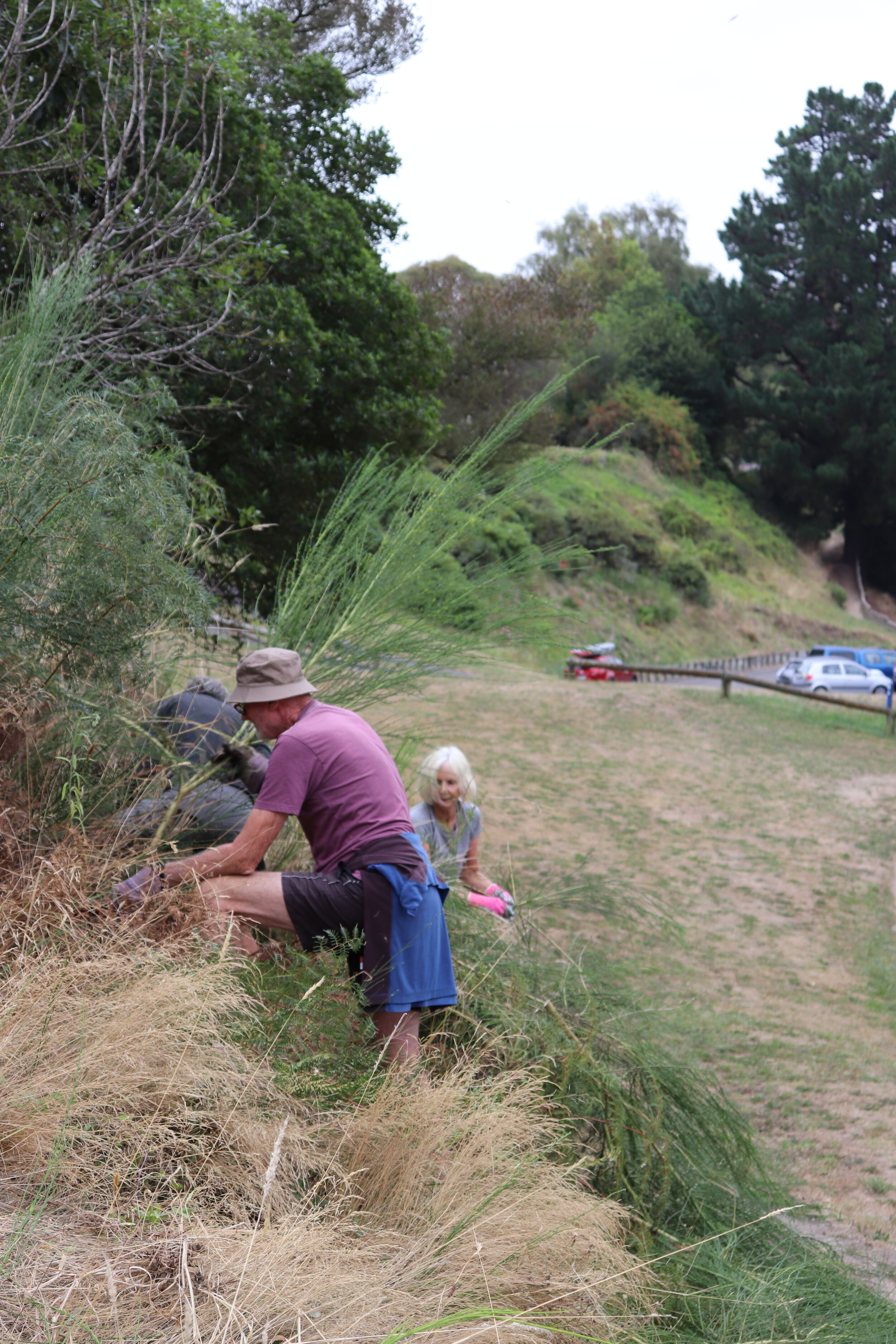Taupō Nui-a-Tia College Restoration at Motutāhae
Biodiversity Studies
In 2019 Taupō Nui-a-Tia College created a new class subject for project-based Science. As part of this subject college students were able to work on three local real-life projects- one being conservation and restoration work at Motutāhae with Kids Greening Taupō. Students joined together with Tauhara College students and Ruud Kleinpaste (The Bug Man) at the start of the year to kickstart their work. As part of this class they conducted a series of biodiversity studies at Motutāhae to learn which species were present and absent in their local restoration area, they built traps with Robyn from Predator Free Taupō, and planted native trees down by the awa.
Students then worked over the term to create research projects and they presented their findings to our Kids Greening Taupō coordinators.
In early 2021, teacher Julieann Hulena joined forces with Kids Greening Taupō Education Coordinator- Sian to restart work with Taupō Nui-a-Tia at Motutāhae.
Together with Sian’s direction and tautoko (support) Julie created a plan for students to gain awareness of, and contribute to, the vision of Predator Free 2050, whilst meeting learning goals in the process.
See what this unit looked like below:
The cultural history of Motutahae
Geoff Rameka (Matua Snow), a local iwi representative launched the project by giving students a korero on the history of the area. Through this, students learned about the area commonly known as ‘Cherry Island’ and decided to adopt the former name of Motutāhae.
Julie’s students established themselves as kaitiaki for Motutāhae from then onwards.
Planting and Weeding with the Greening Taupō Wicked Weeders volunteers
Mahi at Motutāhae was varied. At the beginning of the year the students were able to work with the Wicked Weeders group- a group of volunteers under Greening Taupō. The Wicked Weeder volunteers head out to a Greening Taupō restoration site each week to maintain the area and release the planted native trees of pest plant species. Students were involved in cutting and pasting broom, hand weeding around native plants, and planting new native trees into the area near the awa.
Predator Free 2050 Unit:
In Term 2 2021 Taupō Nui-a-Tia College students started their Predator free 2050 unit at Motutāhae. Together with Sian they learned about Aotearoa’s vision of a Predator Free 2050, made tracking tunnels to identify their target pest species, built traps and started and maintained a trapline of ten traps at Motutāhae.
Watch the video below:
Pests trapped in one term: 6 rats, 6 mice.
Integrating nature into the curriculum- NCEA Assessments
What excites us the most is seeing NCEA unit standards being adapted to ensure students are able to gain NCEA credits for their mahi using our authentic learning context. Julie has gone above and beyond to integrate this local learning into her classroom through literacy and numeracy assessments.
As part of literacy Julie’s students have created a bird report using Hunter's sentences and paragraphs, they wrote instructions for trap building, created a diagram of a native bird, a native plant and an introduced pest, wrote a method for planting harakeke, a method for laying tracking tunnels and a method for setting predator traps.
Unit standards utilised (NCEA Level 1):
US 26624: Read texts with understanding.
US 26622: Write to communicate ideas for a purpose & audience.
US 26625: Actively participate in spoken interactions.
As part of numeracy Julie’s students were involved in mapping at Motutāhae, measuring angles, estimating distance, writing directions, working out percentages of success utilising data from their trapline, comparing accuracy of different measuring tools, as well as lots of mathematical calculations and problem solving.
Unit standards utilised:
US 26626: Interpret statistical information for a purpose.
US 26623: Use number to solve problems.
US 26627: Use measurement to solve problems.
Future unit standard of interest (discovered later into the year):
US 30906: Plan and engage in an activity intended to benefit the community.
We are so proud of all the mahi that Julie and her students have put into Motutāhae as kaitiaki. They have already started planning for 2022!
